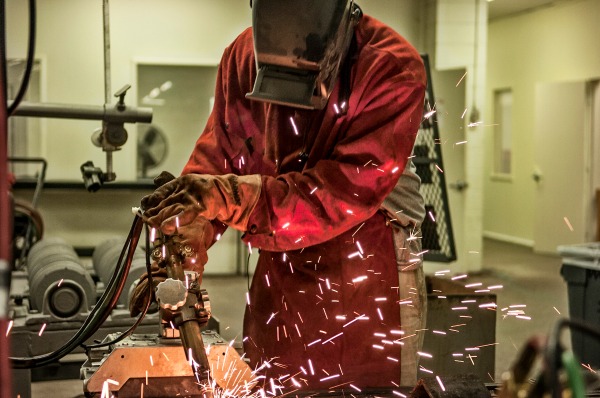2016
Welders trained at HCC contribute to Houston workforce
Oct 5, 2016

Skilled welders play a critical role in the manufacturing and maintenance of structures that require metallic components. In Houston, the recent increase in residential and commercial construction and the doubling in size of the Port of Houston have resulted in a high demand for qualified welders. Through its diverse educational programs for welding, Houston Community College is responding to the industry needs for qualified welders and fulfilling a critical need in the workforce.
Rhoderick Villanueva enrolled in the HCC welding program in 2009. Although he was employed as a welder at the time, he earned only $30,000 a year because of his limited skills.
“I went to HCC to learn multiple processes,” Villanueva said. “HCC makes the tools available. They give you hands-on training and everything you need.”
Villanueva now earns $70,000 a year.
Villanueva’s story reflects the experience of thousands of workers in the energy sector who saw their income potential affected as a result of low oil prices and the subsequent decrease of offshore drilling. The Texas Alliance of Energy Producers reports that Texas has lost approximately 84,000 oil and gas jobs in the past 16 months. Yet the need for welders remains high as a result of the booming raise of residential and commercial construction. A survey by the Associated General Contractors of America found that seventy-four percent of Texas construction companies say they are having a hard time finding hourly craft workers, including trained welders.
According to HCC welding instructor Frank Alderete, an entry level welder can earn $18-20 an hour—more than double the federal minimum wage, but many HCC students graduate beyond entry level and earn even more. The Bureau of Labor Statistics projects a 15% job growth for welders to continue through 2020.
Tom Tynan, Director of Construction & Trades, HCC Continuing Education says that the welding field is changing with more women interested in taking classes. Currently only three percent of U.S. professional welders are women, but Tynan expects that to change given the high pay and the growing need for skilled workers.
Some HCC welding certification programs don’t require applicants to have a high school diploma.
“If you can read and write at a ninth grade level, we can train you,” Tynan said.
To learn about the welding programs offered at HCC, visit hccs.edu/ce and click Welding or call the Continuing Education Department at 713.718.8932
